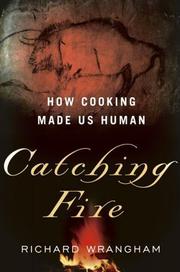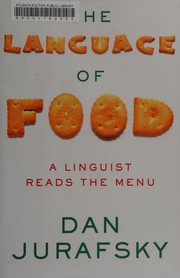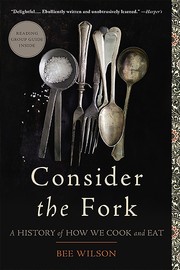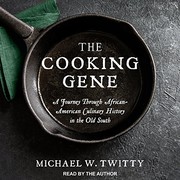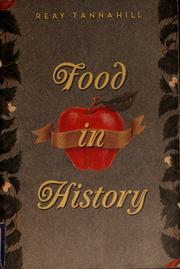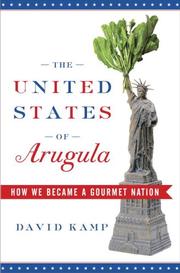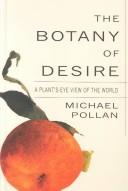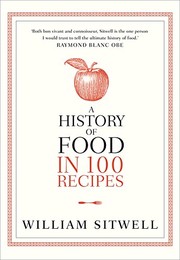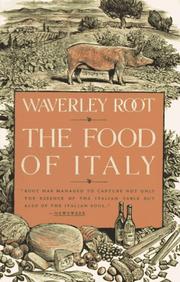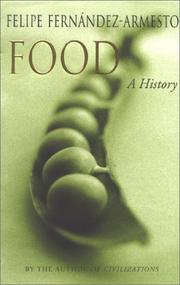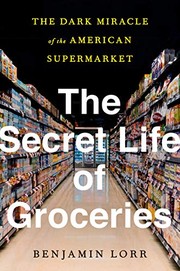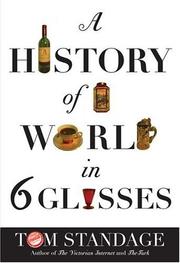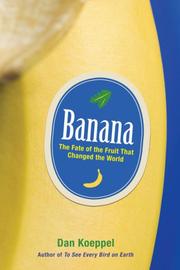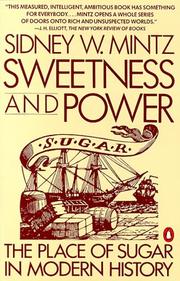Are you a food enthusiast or a history buff looking for a delectable read? Look no further! Dive into the fascinating world of culinary traditions, agriculture, and gastronomy with these 20 best books about the history of food. From ancient civilizations to modern-day trends, these books offer a mouth-watering journey through time. Whether you’re craving a book on the history of food or seeking to explore the evolution of cuisines, these history of food books will surely satisfy your literary appetite.
Contents
- 1 20 Best Books About History Of Food
- 2 Salt: A World History
- 3 The Omnivore’s Dilemma: A Natural History of Four Meals
- 4 Catching Fire: How Cooking Made Us Human
- 5 The Language of Food: A Linguist Reads the Menu
- 6 Consider the Fork: A History of How We Cook and Eat
- 7 The Cooking Gene: A Journey Through African American Culinary History in the Old South
- 8 Food in History
- 9 The United States of Arugula: How We Became a Gourmet Nation
- 10 The Botany of Desire: A Plant’s-Eye View of the World
- 11 Food Politics: How the Food Industry Influences Nutrition and Health
- 12 A History of Food in 100 Recipes
- 13 The Food of Italy
- 14 Food: A History
- 15 The Secret Life of Groceries: The Dark Miracle of the American Supermarket
- 16 Guns, Germs, and Steel: The Fates of Human Societies
- 17 A History of the World in 6 Glasses
- 18 Banana: The Fate of the Fruit That Changed the World
- 19 Sweetness and Power: The Place of Sugar in Modern History
- 20 Food: A Cultural Culinary History
- 21 The Food Explorer: The True Adventures of the Globe-Trotting Botanist Who Transformed What America Eats
- 22 Conclusion
- 23
- 24 Books on Goal Setting: Discover the Top 20 in our 2024 Updated List
- 25 20 Immigrants Coming To America Best Books to Read – The 2024 Edition
- 26 Explore 20 Best New York City History Books with Our 2024 Update
20 Best Books About History Of Food
Salt: A World History
by Mark Kurlansky
Salt: A World History by Mark Kurlansky is a fascinating book about the history of food and its impact on civilization. Kurlansky takes readers on a journey through time, exploring the profound influence of salt on human societies, economies, and cultures. From its role in ancient trade routes to its importance in preserving food before refrigeration, salt has shaped the course of human history in ways that are often overlooked. Kurlansky’s engaging narrative skillfully weaves together anthropology, economics, and gastronomy to reveal the intricate and unexpected ways in which salt has left its mark on the world. With vivid storytelling and meticulous research, this history of food book offers a fresh perspective on the significance of a seemingly simple ingredient, making it a must-read for anyone interested in the complex interplay between food and human civilization.
The Omnivore’s Dilemma: A Natural History of Four Meals
by Michael Pollan
The Omnivore’s Dilemma: A Natural History of Four Meals by Michael Pollan is a fascinating exploration of the complex and often perplexing choices we face when it comes to what we eat. In this thought-provoking book on the history of food, Pollan delves into the origins and implications of our modern food system, tracing the journey of four different meals from their sources to our plates. Through engaging storytelling and meticulous research, he reveals the intricate web of connections between agriculture, industry, and the environment, shedding light on the often hidden realities of our food production. This history of food book raises important questions about the impact of our food choices on our health, the environment, and society as a whole, making it a compelling read for anyone interested in understanding the complex and often conflicting forces that shape our relationship with food.
Catching Fire: How Cooking Made Us Human
by Richard Wrangham
Catching Fire: How Cooking Made Us Human” by Richard Wrangham is a fascinating exploration of the pivotal role that cooking has played in human evolution. This engaging book delves into the history of food, emphasizing the transformative impact of harnessing fire for cooking on our species. Wrangham skillfully weaves together scientific evidence, anthropology, and evolutionary biology to argue that cooking not only provided early humans with a more efficient means of obtaining nutrients, but also played a crucial role in the development of our species’ social structure, cognitive abilities, and even physical anatomy. Drawing on a wide range of examples from different cultures and time periods, Wrangham makes a compelling case for the profound influence of cooking on human development. Whether you’re a food enthusiast, history buff, or simply curious about the origins of human behavior, this history of food book is sure to captivate and enlighten.
The Language of Food: A Linguist Reads the Menu
by Dan Jurafsky
The Language of Food: A Linguist Reads the Menu by Dan Jurafsky is a fascinating exploration of the history of food through the lens of language. Jurafsky, a linguist, delves into the origins of various food names, the evolution of food terminology, and the cultural significance of different food-related words. Through engaging anecdotes and thorough research, he uncovers the connections between language, culture, and food, offering readers a deeper understanding of the history of food. This insightful and entertaining book is perfect for anyone interested in the history of food, language, and the intersection of the two.
Consider the Fork: A History of How We Cook and Eat
by Bee Wilson
Consider the Fork: A History of How We Cook and Eat by Bee Wilson is a captivating book on the history of food that delves into the evolution of kitchen tools and cooking techniques. Wilson takes readers on a journey through time, exploring the impact of various utensils and gadgets on the way we prepare and consume food. From the invention of the knife to the modern marvels of microwaves and sous-vide machines, this book about the history of food offers a fascinating insight into the cultural, social, and technological forces that have shaped our culinary habits. Wilson’s engaging storytelling and meticulous research make Consider the Fork a must-read for anyone with an interest in food, cooking, and the history of food.
The Cooking Gene: A Journey Through African American Culinary History in the Old South
by Michael W. Twitty
The Cooking Gene: A Journey Through African American Culinary History in the Old South by Michael W. Twitty is a captivating exploration of the rich and complex history of food in the American South. In this thought-provoking and deeply personal narrative, Twitty delves into the roots of African American cuisine, tracing the influences of slavery, colonization, and migration on the region’s culinary traditions. Through a combination of genealogy, historical research, and personal anecdotes, Twitty uncovers the stories of the enslaved people who shaped Southern cooking and celebrates the resilience and creativity of their descendants. This book on history of food offers a powerful and illuminating look at how food has played a central role in shaping African American identity and culture, making it a must-read for anyone interested in the cultural and social significance of food.
Food in History
by Reay Tannahill
Food in History by Reay Tannahill is a captivating exploration of the role of food in shaping human civilization. This insightful book delves into the fascinating history of food, from the earliest hunter-gatherer societies to the modern global food industry. Tannahill skillfully weaves together anthropology, archaeology, and culinary history to provide a comprehensive understanding of how food has influenced human development and cultural evolution. Readers will be enthralled by the rich tapestry of stories, recipes, and customs that illuminate the diverse ways in which food has shaped our world. Whether you’re a food enthusiast, a history buff, or simply curious about the origins of the dishes we enjoy today, this book about the history of food is a must-read. Food in History offers a delectable journey through the centuries, serving up a feast of knowledge and insight into the complex and delicious history of food.
The United States of Arugula: How We Became a Gourmet Nation
by David Kamp
The United States of Arugula: How We Became a Gourmet Nation is a captivating book on the history of food that delves into the evolution of American cuisine. Written by David Kamp, this insightful book about the history of food takes readers on a journey through the culinary landscape of the United States, exploring the cultural, social, and economic factors that have shaped the way Americans eat. From the rise of food trends to the influence of celebrity chefs, Kamp offers a fascinating look at how America transformed from a nation of meat and potatoes to a hub of gastronomic innovation. With vivid storytelling and meticulous research, this history of food book sheds light on the trends, personalities, and movements that have defined the American food scene, making it a must-read for anyone interested in the cultural significance of food.
The Botany of Desire: A Plant’s-Eye View of the World
by Michael Pollan
The Botany of Desire: A Plant’s-Eye View of the World by Michael Pollan is a captivating exploration of the co-evolutionary relationship between humans and four plants: the apple, tulip, marijuana, and potato. In this thought-provoking book, Pollan delves into the fascinating history of these plants and their impact on human civilization. Through engaging storytelling and meticulous research, he uncovers the ways in which these plants have shaped human desires and influenced the course of history. This book offers a fresh perspective on the history of food, revealing the intricate connections between plants and human culture. Whether you’re a plant enthusiast or simply curious about the hidden forces that have shaped our diets and desires, The Botany of Desire is a must-read for anyone interested in the captivating history of food.
Food Politics: How the Food Industry Influences Nutrition and Health
by Marion Nestle
Food Politics: How the Food Industry Influences Nutrition and Health by Marion Nestle is a compelling exploration of the intricate relationship between the food industry, nutrition, and public health. Nestle, a renowned nutritionist, delves into the history of food and uncovers the ways in which powerful food corporations influence what we eat and ultimately, our health. She scrutinizes the impact of food marketing, government policies, and agricultural practices on our dietary choices and well-being. Nestle’s insightful analysis provides a thought-provoking look at the complex web of factors that shape our food system, making this book a must-read for anyone interested in understanding the dynamics of the modern food industry. Whether you’re a food enthusiast, a health advocate, or simply curious about the history of food, this book offers a fascinating and eye-opening exploration of the forces behind our food.
A History of Food in 100 Recipes
by William Sitwell
A History of Food in 100 Recipes by William Sitwell is a captivating book on the history of food. Sitwell takes readers on a delectable journey through time, exploring the evolution of cuisine through a carefully curated selection of 100 recipes. From ancient dishes to modern delicacies, each recipe tells a unique story about the cultural, social, and economic influences that have shaped our culinary traditions. This book about the history of food provides a fascinating insight into how food has played a central role in human civilization, reflecting changes in society, technology, and global exploration. Sitwell’s engaging storytelling and in-depth research make this history of food book a must-read for food enthusiasts and history buffs alike, offering a fresh perspective on the significance of food in our lives.
The Food of Italy
by Waverley Root
The Food of Italy by Waverley Root is a captivating book about the history of food that takes readers on a delicious journey through the culinary traditions of Italy. Root delves into the history of food in Italy, exploring the origins of iconic dishes and ingredients, and the cultural significance of Italian cuisine. From the rich flavors of Tuscany to the seafood delights of the Amalfi Coast, this book is a comprehensive exploration of the diverse regional cuisines that make Italy a food lover’s paradise. Root’s engaging storytelling and in-depth research make this history of food book a must-read for anyone with a passion for Italian cooking and culture. Whether you’re a seasoned chef or an armchair traveler, The Food of Italy will leave you hungry for more.
Food: A History
by Felipe Fernández-Armesto
Food: A History by Felipe Fernández-Armesto is a captivating exploration of the evolution of human civilization through the lens of food. This book delves into the intricate connections between culture, geography, and culinary traditions, offering a rich tapestry of stories that span continents and centuries. Fernández-Armesto skillfully weaves together anthropology, archaeology, and gastronomy to paint a vivid picture of how food has shaped societies and vice versa. From ancient agricultural practices to the globalization of cuisines, this book provides a comprehensive look at the complex interplay between humans and the foods they consume. Whether you’re a food enthusiast or a history buff, this book about the history of food is a fascinating journey through the flavors and customs that have defined human existence.
The Secret Life of Groceries: The Dark Miracle of the American Supermarket
by Benjamin Lorr
The Secret Life of Groceries: The Dark Miracle of the American Supermarket by Benjamin Lorr is a captivating book on the history of food that takes readers on a fascinating journey through the complex and often overlooked world of the American supermarket. Through immersive investigative journalism, Lorr delves into the intricacies of the modern food supply chain, offering an eye-opening exploration of the people, processes, and power dynamics that shape the way we eat. With a keen eye for detail and a compelling narrative style, Lorr sheds light on the hidden forces at play behind the seemingly mundane act of grocery shopping, making this book about the history of food a must-read for anyone curious about the history of food industry.
Guns, Germs, and Steel: The Fates of Human Societies
by Jared Diamond
Guns, Germs, and Steel: The Fates of Human Societies by Jared Diamond is a captivating book on the history of food and its impact on the development of human societies. Diamond explores the reasons behind the unequal distribution of power and wealth across different societies, attributing it to factors such as access to certain plants, animals, and geographical advantages. Through a compelling narrative, Diamond delves into the intertwined history of food, technology, and culture, offering a fresh perspective on the forces that have shaped human history. This thought-provoking book about the history of food challenges traditional views on the rise of civilizations and offers a fascinating exploration of how the food choices of our ancestors continue to influence our world today.
A History of the World in 6 Glasses
by Tom Standage
A History of the World in 6 Glasses by Tom Standage is a fascinating book on the history of food and its impact on human civilization. Standage explores the influence of six different beverages – beer, wine, spirits, coffee, tea, and cola – on the development of societies around the world. Through engaging storytelling, the author delves into the significance of these drinks in shaping cultural, political, and economic movements throughout history. From the beer-drinking Sumerians to the coffee-loving Ottoman Empire, Standage takes readers on a captivating journey through time, highlighting the pivotal role of these beverages in shaping the world as we know it. This book about history of food offers a refreshing perspective on how something as simple as a drink can have a profound impact on human history.
Banana: The Fate of the Fruit That Changed the World
by Dan Koeppel
Banana: The Fate of the Fruit That Changed the World by Dan Koeppel is a fascinating book on the history of food that delves into the captivating story of the banana. Koeppel takes readers on a journey through the history, biology, and global impact of this beloved fruit. From its origins in Southeast Asia to its spread around the world, the book uncovers the surprising and often overlooked role that bananas have played in shaping human history. Koeppel also explores the challenges facing the banana industry today, including disease and environmental threats. This meticulously researched and engagingly written history of food book offers readers a new perspective on a fruit that has had a profound influence on the world.
Sweetness and Power: The Place of Sugar in Modern History
by Sidney Mintz
Sweetness and Power: The Place of Sugar in Modern History by Sidney Mintz is a renowned book on the history of food that delves into the global impact of sugar production and consumption. Mintz traces the rise of sugar as a commodity and examines its influence on the development of capitalism, slavery, and consumer culture. By exploring the ways in which sugar shaped social structures and daily life, Mintz provides a fascinating perspective on the history of food. This book about the history of food not only offers valuable insights into the interconnectedness of food, power, and society, but also sheds light on the enduring legacy of sugar in the modern world. Whether you’re a food enthusiast or a history buff, Sweetness and Power is a compelling read that will deepen your understanding of the history of food.
Food: A Cultural Culinary History
by Ken Albala
Food: A Cultural Culinary History by Ken Albala is a captivating exploration of the intricate and diverse world of culinary traditions. This book delves into the fascinating history of food, from early human diets to the modern food industry, offering a comprehensive look at how sociocultural, economic, and technological factors have shaped what and how we eat. Albala expertly examines the influence of international trade, religious beliefs, and social customs on food consumption, providing readers with a deeper understanding of the complex relationship between food and culture. With mouth-watering descriptions and thought-provoking analysis, this book on history of food is a must-read for anyone interested in the origins and evolution of human gastronomy.
The Food Explorer: The True Adventures of the Globe-Trotting Botanist Who Transformed What America Eats
by Daniel Stone
The Food Explorer: The True Adventures of the Globe-Trotting Botanist Who Transformed What America Eats by Daniel Stone is a captivating book about the history of food. It follows the remarkable journey of David Fairchild, a botanist who traveled the world in the late 19th and early 20th centuries, searching for new and exotic plants to introduce to the United States. Fairchild’s discoveries revolutionized American cuisine, bringing foods like avocados, mangoes, and nectarines to the country for the first time. Through vivid storytelling and meticulous research, Daniel Stone paints a vivid picture of Fairchild’s globe-trotting adventures and the lasting impact of his work on the American diet. This history of food book is a fascinating exploration of the intersection of botany, adventure, and culinary history, and it sheds light on the often-overlooked role of plant explorers in shaping the way we eat today.
Conclusion
Exploring the History Of Food through literature is a fascinating journey that offers insights into our culinary past. The 20 best books about history of food provide an in-depth look at the cultural, social, and economic factors that have shaped our eating habits over the centuries. From ancient civilizations to modern food trends, these books offer a rich tapestry of stories and knowledge that will satisfy the appetite of any food enthusiast.
Which History Of Food book is best?
The best book on History Of Food can vary with personal preference, but three widely recommended titles are:
- Salt: A World History by Mark Kurlansky,
- The Omnivore’s Dilemma: A Natural History of Four Meals by Michael Pollan,
- Catching Fire: How Cooking Made Us Human by Richard Wrangham.
Each offers valuable insights and could be a great starting point.
What are the best books to learn about History Of Food?
For those looking to learn about History Of Food, there is a wealth of literature that can provide a comprehensive understanding of the subject. Some of the most highly recommended books include:
- Salt: A World History by Mark Kurlansky,
- The Omnivore’s Dilemma: A Natural History of Four Meals by Michael Pollan,
- Catching Fire: How Cooking Made Us Human by Richard Wrangham,
- The Language of Food: A Linguist Reads the Menu by Dan Jurafsky,
- Consider the Fork: A History of How We Cook and Eat by Bee Wilson,
- The Cooking Gene: A Journey Through African American Culinary History in the Old South by Michael W. Twitty,
- Food in History by Reay Tannahill,
- The United States of Arugula: How We Became a Gourmet Nation by David Kamp,
- The Botany of Desire: A Plant’s-Eye View of the World by Michael Pollan,
- Food Politics: How the Food Industry Influences Nutrition and Health by Marion Nestle
These books offer a range of perspectives on History Of Food, covering various aspects and approaches to the subject.
What are the best books on History Of Food?
The best books on History Of Food include:
- Salt: A World History by Mark Kurlansky,
- The Omnivore’s Dilemma: A Natural History of Four Meals by Michael Pollan,
- A History of Food in 100 Recipes by William Sitwell,
- The Food of Italy by Waverley Root,
- The United States of Arugula: How We Became a Gourmet Nation by David Kamp,
- The Cooking Gene: A Journey Through African American Culinary History in the Old South by Michael W. Twitty.
Each offers unique insights into the subject. While these books on the topic of History Of Food are highly regarded, it’s important to note that any list of ‘best’ books is subjective and reflects a range of opinions.
What are the best History Of Food books of all time?
Choosing the best History Of Food books of all time can vary depending on who you ask, but seven titles that are often celebrated include
- Salt: A World History by Mark Kurlansky,
- The Omnivore’s Dilemma: A Natural History of Four Meals by Michael Pollan,
- Consider the Fork: A History of How We Cook and Eat by Bee Wilson,
- The United States of Arugula: How We Became a Gourmet Nation by David Kamp,
- Food Politics: How the Food Industry Influences Nutrition and Health by Marion Nestle,
- The Food of Italy by Waverley Root,
- and A History of Food in 100 Recipes by William Sitwell.
Each of these books has made a significant impact in the field of History Of Food and continues to be influential today.



